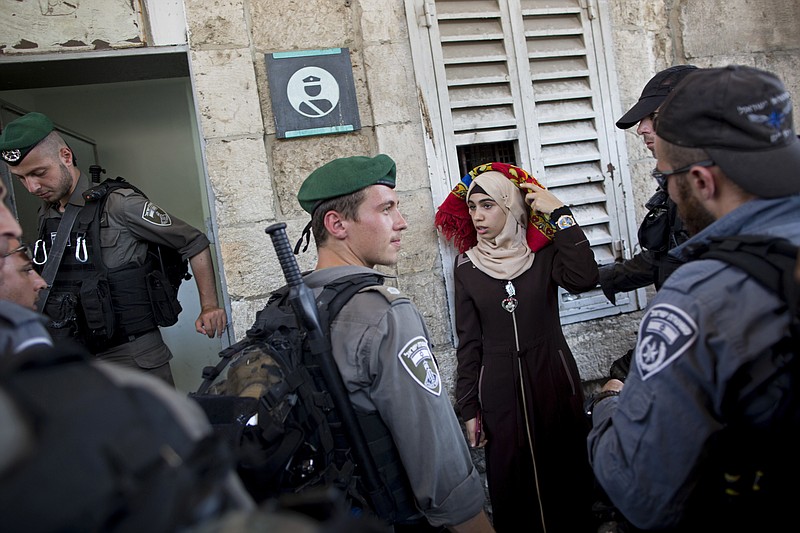JERUSALEM (AP) - Israel banned Muslim men under the age of 50 from a contested Jerusalem shrine on Friday, ahead of expected protests over the installation of metal detectors there.
Police reinforcements poured into Jerusalem's Arab neighborhoods in the morning, particularly in an around the walled Old City where the shrine is located.
The security measures came just hours after Israel's security Cabinet reportedly decided in an overnight session not to overrule a police decision earlier this week to install the metal detectors at the gates of the shrine that is revered by Muslims and Jews.
The gates were fitted with metal detectors after Palestinian gunmen launched an attack from there last week, killing two Israeli policemen. Muslim leaders alleged that the metal detectors are part of a purported Israeli attempt to expand control over the site, which sits at the heart of the Israeli-Palestinian conflict.
Israel has denied such allegations, arguing that metal detectors are routine security devices.
Muslim leaders have called on worshippers to pray in the streets near the shrine rather than walk through metal detectors. Over the course of the week, growing numbers of Palestinian worshippers have participated in such street prayers, particularly in the evenings. Following such prayers, smaller numbers of Palestinian protesters have clashed with police.
On Thursday evening, police fired rubber bullets, tear gas and stun grenades to disperse protesters who, according to police, threw rocks and bottles.
Paramedics from the Red Crescent said 37 people were injured by rubber bullets, three of them seriously.
Friday is the highlight of the Muslim religious week, and tens of thousands of worshippers typically perform prayers at the shrine, known to Muslims as the Noble Sanctuary and to Jews as the Temple Mount.
Muslim leaders have urged the faithful to forego prayers in smaller Jerusalem neighborhood mosques Friday and converge on the shrine, in an attempt to increase the crowd size.
Police announced Friday that Muslim men under the age of 50 would be banned from the shrine and that it was sending reinforcements to Jerusalem.
"Police and border police units mobilized in all areas and neighborhoods," said spokesman Micky Rosenfeld.
Israeli media reported earlier Friday that the security Cabinet decided to defer to police on the metal detectors. The decision came despite appeals from key Muslim countries, particularly Jordan, to remove the devices.
Jordan is the custodian of the Muslim shrine. Israel and Jordan have close security ties, but frequently clash over Israel's policies at the holy site.
